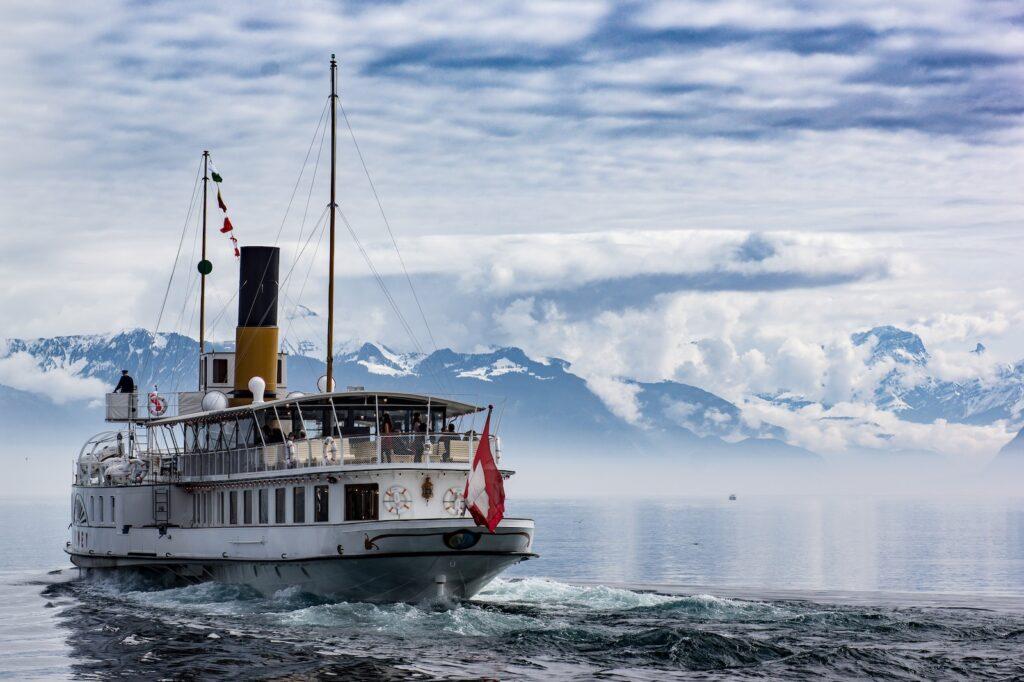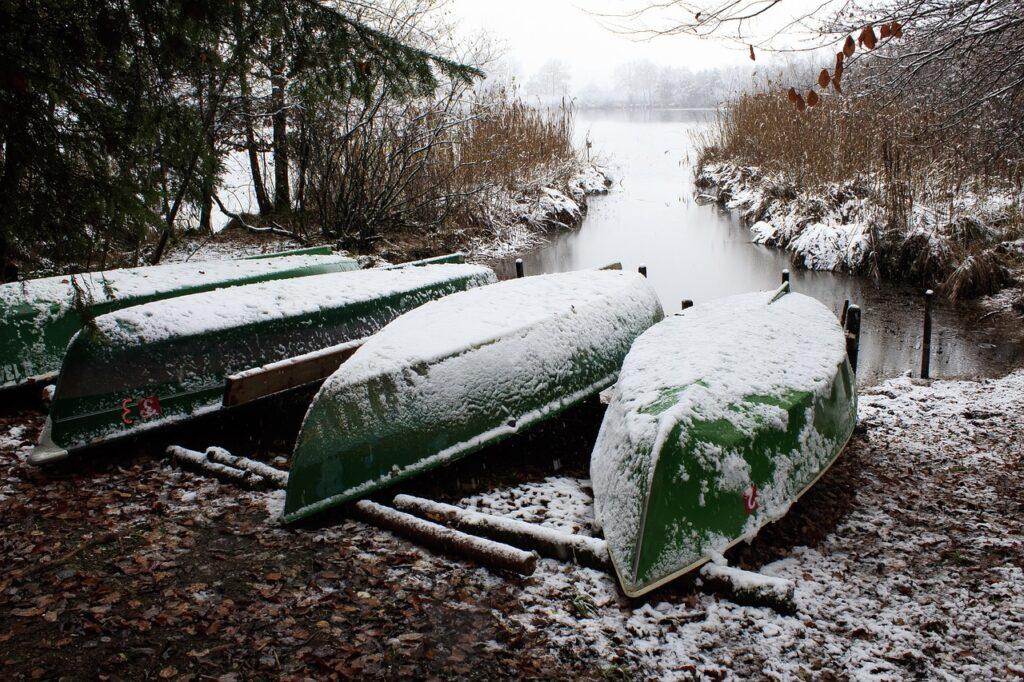Best Marine Antifreezes
Looking for the best marine antifreezes to keep your boat protected in extreme cold conditions? Look no further!
In this article, we’ll guide you through the different types of marine antifreezes and help you choose the right one for your needs. Whether you’re on a budget or looking for eco-friendly options, we’ve got you covered.
Don’t let the cold weather ruin your boating experience — find the perfect marine antifreeze for maximum protection and peace of mind.
Different Types of Marine Antifreezes
In this article, we’ll explore the various types of marine antifreezes available for you to choose from. When it comes to protecting your boat’s engine from freezing temperatures, you want to have the freedom to select the best option. Marine antifreezes come in different types, each with its own unique features and benefits.
The first type of marine antifreeze is the propylene glycol-based antifreeze. This type is non-toxic and safe for use in freshwater and saltwater applications. It provides excellent protection against freezing and corrosion, ensuring the longevity of your boat’s engine.
Another option is the ethylene glycol-based antifreeze. While it offers superior protection against freezing, it’s important to note that this type is toxic and shouldn’t be used in applications where there’s a risk of contact with drinking water or marine life.
For those seeking a more eco-friendly option, there are biodegradable antifreezes available. These antifreezes are made from renewable resources and break down naturally, minimizing their impact on the environment.
Ultimately, the choice of marine antifreeze depends on your specific needs and preferences. Whether you prioritize safety, performance, or environmental impact, there’s a marine antifreeze out there that will meet your requirements. So go ahead and make the decision that gives you the freedom to enjoy your boating adventures worry-free.

Factors to Consider When Choosing a Marine Antifreeze
Consider these three important factors when choosing the right marine antifreeze for your boat: compatibility, temperature rating, and environmental impact.
- Compatibility: Ensure that the antifreeze you choose is compatible with your boat’s engine and cooling system. Different engines may require different types of antifreeze, so it’s essential to check the manufacturer’s recommendations before making a decision.
- Temperature rating: Consider the temperature rating of the antifreeze. It should be able to provide adequate protection against freezing in the coldest temperatures your boat may encounter. Look for antifreeze that can handle the lowest temperatures in your boating region to prevent engine damage due to freezing.
- Environmental impact: Choose an antifreeze that’s environmentally friendly. Look for products that are biodegradable and non-toxic, as they’ll have minimal impact on the water and marine life. This way, you can enjoy your boating adventures without harming the environment.
- Ease of use: Consider the ease of use of the antifreeze. Look for antifreeze that’s easy to pour, mix, and drain. This will make winterizing and maintaining your boat’s cooling system a breeze, saving you time and effort.
Top-Rated Marine Antifreezes for Extreme Cold Conditions
Are you wondering which marine antifreezes are the top-rated options for extreme cold conditions? When it comes to protecting your boat’s engine and plumbing system from freezing temperatures, it’s important to choose a reliable and effective antifreeze. Below is a table showcasing some of the best marine antifreezes specifically designed to withstand extreme cold conditions.
| Brand | Type | Freeze Point |
|---|---|---|
| Prestone | Ethylene Glycol | -60°F |
| Star Brite | Propylene Glycol | -50°F |
| Camco | Propylene Glycol | -50°F |
| Sierra | Propylene Glycol | -50°F |
| Star Tron | Ethanol | -40°F |
These top-rated marine antifreezes have been tested and proven to provide excellent protection against freezing temperatures, ensuring that your boat’s engine and plumbing system remain in optimal condition. Whether you’re boating in sub-zero temperatures or storing your boat during the winter months, these antifreezes will deliver reliable performance and peace of mind.

Affordable Marine Antifreezes With Great Performance
Have you been searching for affordable marine antifreezes that still deliver great performance? Look no further! We understand that you value your freedom and want to make the most out of your boating adventures without breaking the bank. Here are four affordable marine antifreezes that will keep your engine protected and ensure smooth sailing all year round:
- Star Brite ‑50°F Non-Toxic Antifreeze: This budget-friendly option offers excellent freeze protection and is safe for both freshwater and saltwater systems. It provides corrosion protection and is biodegradable, making it environmentally friendly.
- Camco ‑100°F Burst Antifreeze: With its extreme cold protection, this affordable antifreeze is perfect for harsh winter conditions. It can be used in all plumbing systems and is non-toxic, ensuring the safety of your boat’s components.
- Prestone ‑60°F Marine Antifreeze: This high-performance antifreeze is designed specifically for marine engines. It prevents corrosion, lubricates the water pump seals, and offers excellent protection against freezing temperatures.
- Zerex ‑50°F Extended Life Antifreeze: This long-lasting antifreeze is compatible with all types of coolant and provides protection against freezing, boiling, and corrosion. It’s affordable and suitable for both aluminum and cast iron engines.
Marine Antifreezes With Added Corrosion Protection
Looking for marine antifreezes with added corrosion protection? Look no further! When it comes to protecting your boat’s engine from the harsh effects of freezing temperatures and corrosive elements, choosing an antifreeze with added corrosion protection is essential. These specialized antifreezes are designed to not only prevent freezing but also to inhibit rust and corrosion, ensuring the longevity and performance of your marine engine.
One of the top options in this category is the Star brite ‑100°F (-73°C) Non-Toxic Antifreeze. This antifreeze is formulated with a special blend of corrosion inhibitors that provide excellent protection for all metal engine components, including aluminum, brass, and copper. It’s also non-toxic and safe for use in potable water systems, making it a versatile choice for all marine applications.
Another great option is the Camco ‑50°F (-46°C) RV & Marine Antifreeze. This antifreeze is specifically designed for use in recreational vehicles and marine systems. It contains a unique blend of corrosion inhibitors that protect against rust and corrosion, ensuring the longevity of your engine. It’s also non-toxic and safe for use in drinking water systems.
With these marine antifreezes with added corrosion protection, you can have peace of mind knowing that your boat’s engine is well-protected against freezing temperatures and corrosive elements. So, go ahead and enjoy the freedom of exploring the open waters without worrying about the damaging effects of winter weather.
Eco-Friendly Options for Marine Antifreezes
When it comes to protecting the environment while keeping your boat’s engine safe, consider using eco-friendly options for marine antifreezes. Not only will these antifreezes help prevent damage to your engine during the colder months, but they also have a reduced impact on the environment.
Here are four eco-friendly options to consider:
- Propylene Glycol Antifreeze: This type of antifreeze is biodegradable and non-toxic, making it a safe choice for both your engine and the environment. It provides excellent freeze protection and corrosion prevention.
- Vegetable-Based Antifreeze: Made from renewable resources such as corn or soy, vegetable-based antifreeze is biodegradable and non-toxic. It offers similar freeze protection to traditional antifreezes while being more environmentally friendly.
- Non-Toxic Antifreeze: These antifreezes are made without the use of ethylene glycol, which is toxic to humans and animals. Instead, they use a combination of additives and propylene glycol to provide freeze protection without harming the environment.
- Recycled Antifreeze: Some companies offer antifreezes that are made from recycled materials, reducing the need for new production and minimizing waste. These antifreezes are often just as effective as traditional options but have a lower environmental impact.
What is marine grade antifreeze?
Marine grade antifreeze is a type of antifreeze specifically designed for use in boats. It is formulated to be more resistant to corrosion and rust, and it also has a lower freezing point than regular antifreeze, making it a better choice for use in cold climates. Marine grade antifreeze also contains additional additives that help protect against the effects of saltwater and other harsh conditions found in marine environments.
Can I use regular antifreeze to winterize my boat?
No, you should not use regular antifreeze to winterize your boat. Boat-specific antifreeze products are designed to be safe for use in marine engines and should be used instead to ensure proper protection from freezing temperatures. It is designed to be non-toxic and safe for the environment, whereas regular antifreeze is not.
Conclusion
They are essential for boats and other watercraft in order to keep the engine and other parts from freezing during winter months. There are many different types of marine antifreezes available, so it is important to select the best one for your specific needs. Doing research and reading reviews can help you make an informed decision. Ultimately, the best marine antifreeze is one that is designed to suit the application and offers reliable protection against freezing temperatures.


